Project lead: Edith Cowan University (ECU) and Maaman Marra Boodjar
Project overview
Co-led by the Centre for People, Place, and Planet at Edith Cowan University (ECU) and Maaman Marra Boodjar, this project collaborates with industry and farmers to enhance environmental health through interventions. It explores Aboriginal agricultural practices and literacies, blending biophysical and cultural perspectives. The research braids Aboriginal place-based knowledge into local agricultural practices, using a methodology that combines field research with case studies of partnerships. By merging traditional knowledge with Western scientific methodologies, the project aims to create innovative metrics for assessing natural system health and resilience.
This project will establish protocols for evaluating the effectiveness of Aboriginal-designed landscape rehydration practices on broadacre farms in the Mid-West. This evaluation enhances climate resilience by addressing salinisation, floodplain erosion, and water management on Country. By examining knowledge transfer mechanisms, the project seeks to derive best practices for intercultural and intergenerational learning in agricultural settings. These principles can be applied in other communities to implement landscape literacies, benefiting future productive landscapes.
Expected outcomes
Expected outcomes are the development of a protocol and an intergenerational learning framework built around Aboriginal knowledge to understand practical ways to retain water in place and adapt to changing seasonal influences, climatic conditions and rainfall across the seasons and into the future. Additionally, it will provide baseline data on soil health parameters to illustrate the effectiveness of such an approach.
This project will begin to investigate how Aboriginal systems of knowledge can be understood and meaningfully and respectfully incorporated into local agricultural practices using a combination of both applied field research and case studies of Aboriginal/non-Aboriginal partnerships.
This work will address questions like:
What are the drivers and impediments to knowledge transfer? How does this knowledge system improve the natural capital of farming systems and climate/drought resilience? How are local agricultural practices transformed?
This project’s foundational aspects and protocols provide the beginning of a transformational system that can be transferred to other growing regions of Western Australia.
This project is supported by the South-West WA Drought Resilience Adoption and Innovation Hub, through funding from the Australian Government’s Future Drought Fund, and the WA Agricultural Research Collaboration.
News
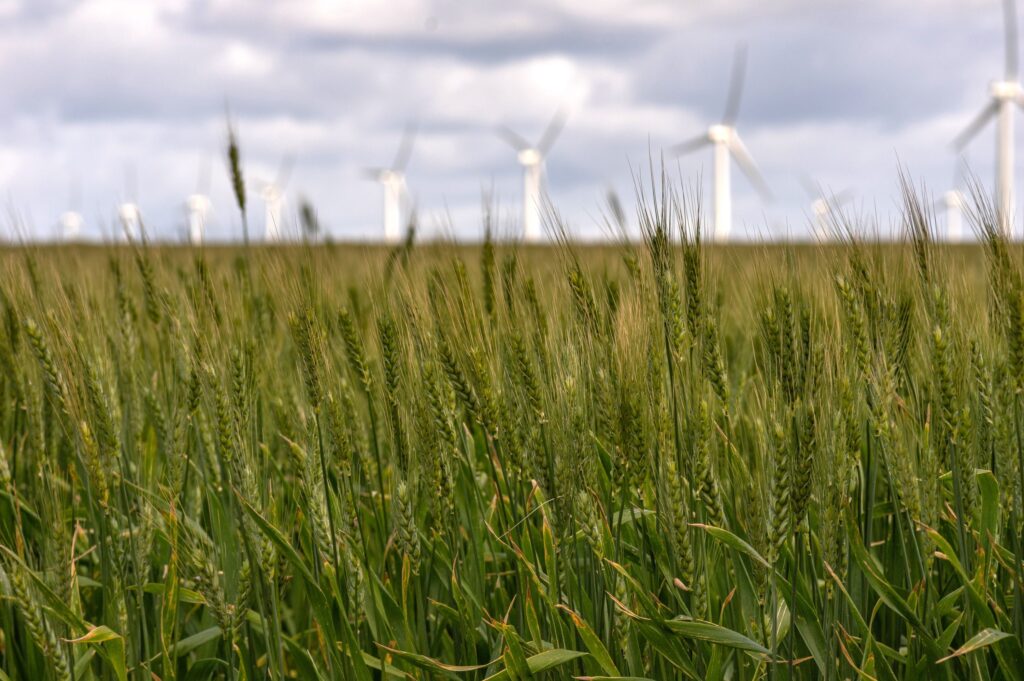
Transformational projects make strides towards agricultural resilience in WA
Six transformational projects led by the SW WA Hub and funded through the Future Drought Fund (FDF) are making meaningful strides toward long-term agricultural resilience in Western Australia.
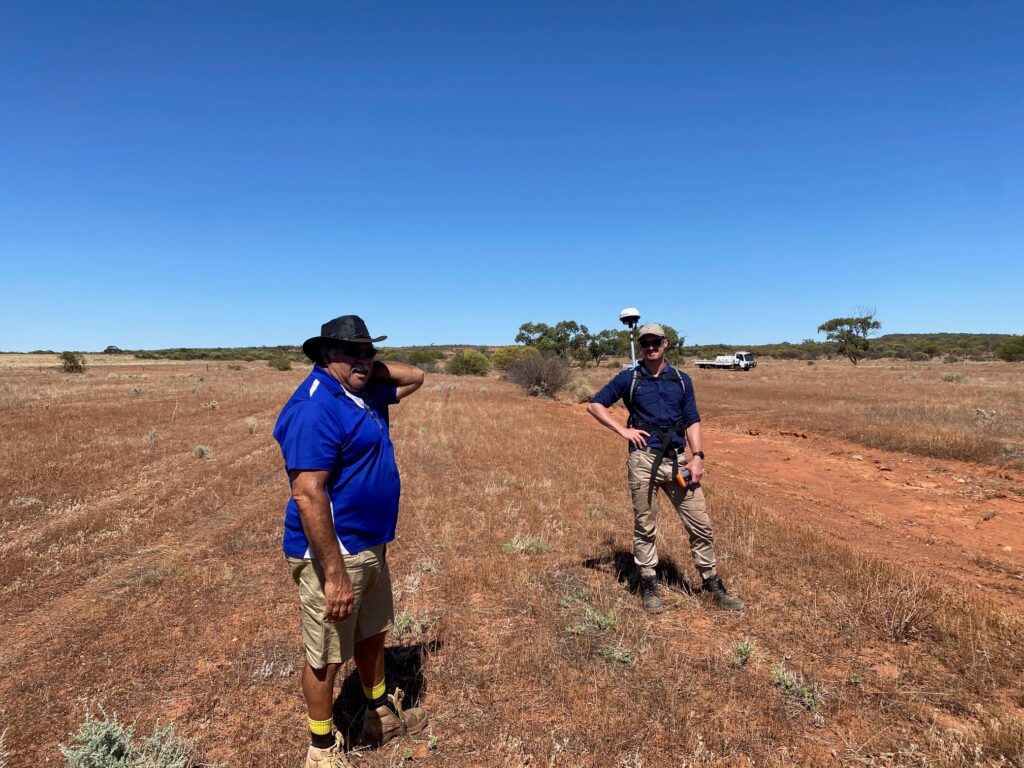
Mapping, monitoring and yarning on Country
During the season of Birak (December–January), the Transformative Aboriginal Agricultural Methods (TAAM) project team mapped sites on Gimlet Ridge and Weelhamby farms where landscape interventions, such as leaky weirs, will be installed to slow water flow and improve the landscape’s hydrology.
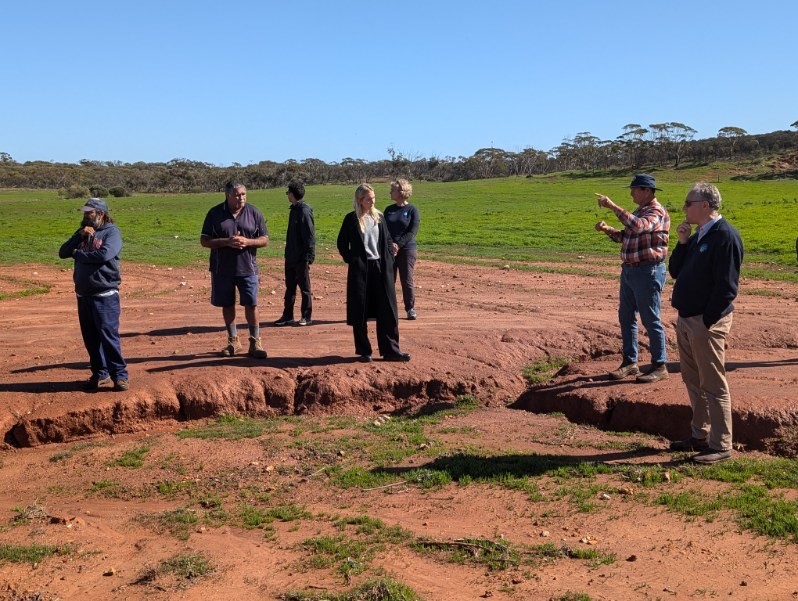
Exploring transformative Aboriginal rehydration methods in Perenjori
This week, SW WA Drought Hub Director, Mark Holland, Hub Project Manager, Lucy Tomassini and Hub MEL Manager & Adoption Officer, Theodore Nabben visited Perenjori to gain valuable insights from Clint Hansen of Maaman Marra Boodjar on how he is utilising Aboriginal rehydration and restoration methods to address current and future climate challenges in contemporary agricultural systems.
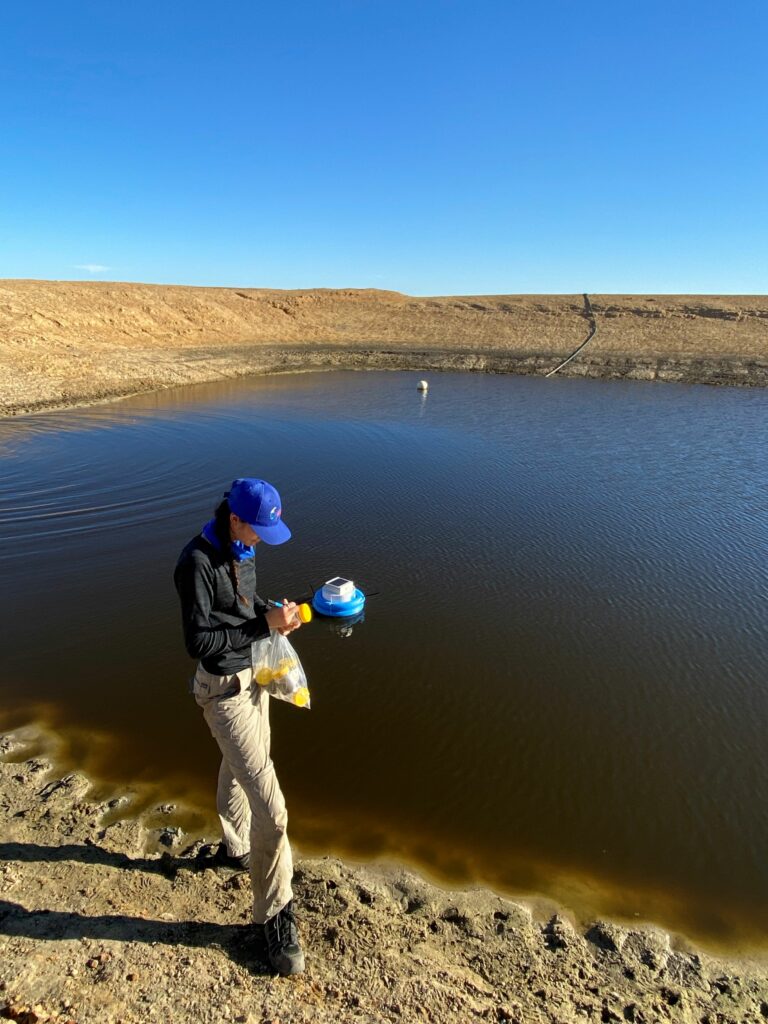
New Drought Hub projects set to transform agricultural practices
Six 18-month transformational agricultural projects have commenced in Western Australia after grants worth $1 million were awarded by the South‐West WA Drought Resilience Adoption and Innovation Hub (SW WA Hub).
Additional resources
Collaborators
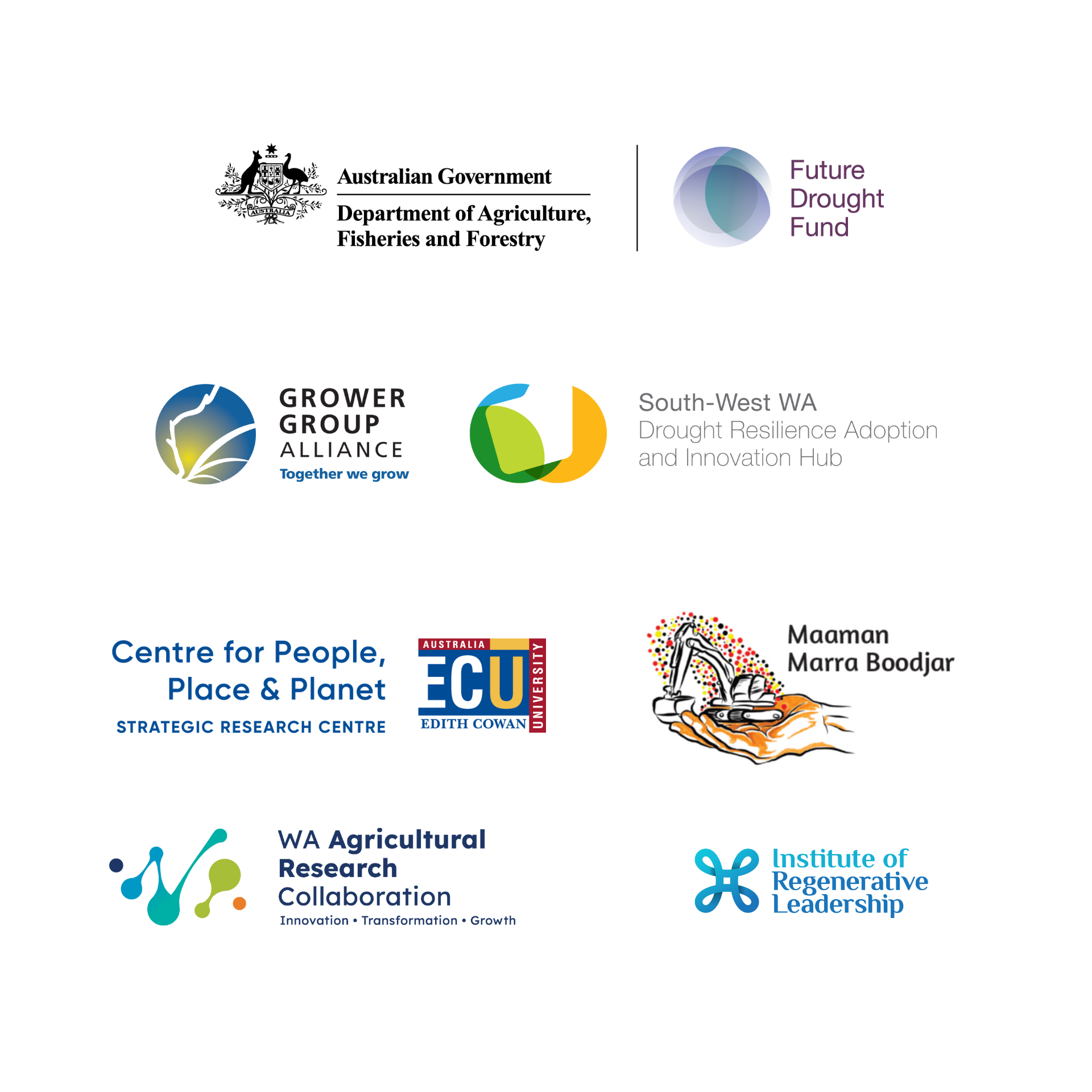
Contact
Dr David Blake
Senior Lecturer, Centre for People, Place and Planet Edith, Cowan University
d.blake@ecu.edu.au
0438 084 830
Mr Clint Hansen
CEO, Maaman Marra Boodja
maamanmarraboodjar@gmail.com
0436 002 081
Assoc Prof Janine Joyce
Associate Dean (Social Sciences, Social Work and Youth Work), Centre for People, Place and Planet, Edith Cowan University
j.joyce@ecu.edu.au
0401 822 493
Lucy Tomassini
Project Manager, South-West WA Drought Resilience Adoption and Innovation Hub
lucy.tomassini@gga.org.au
